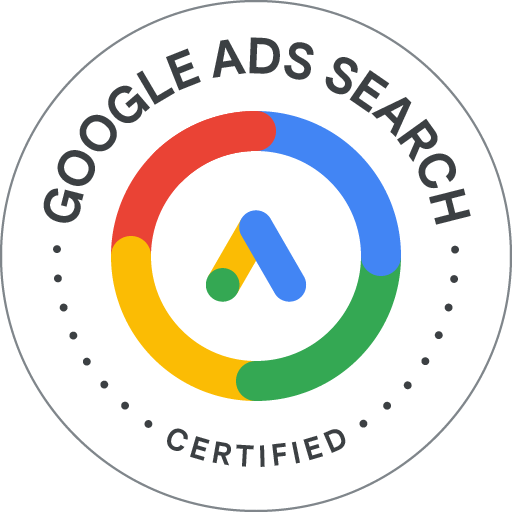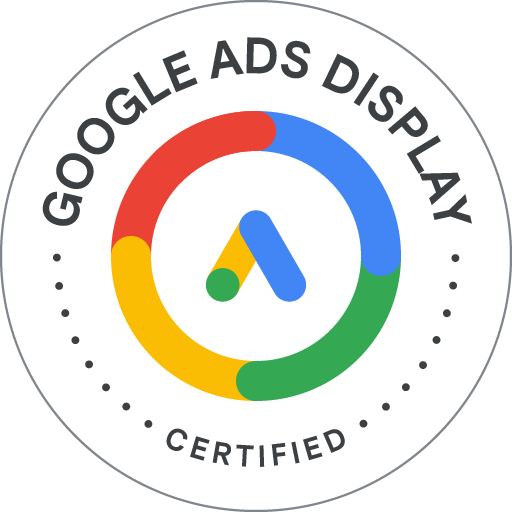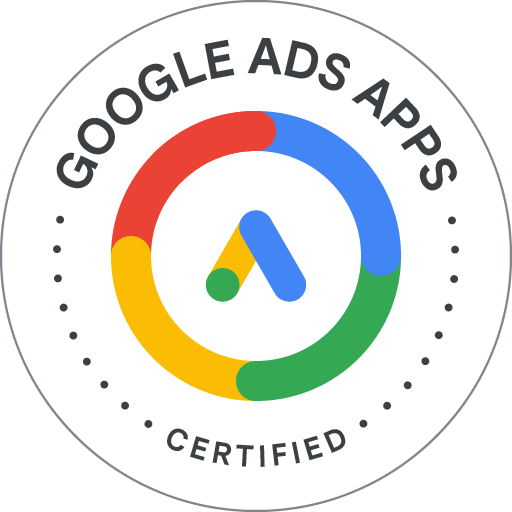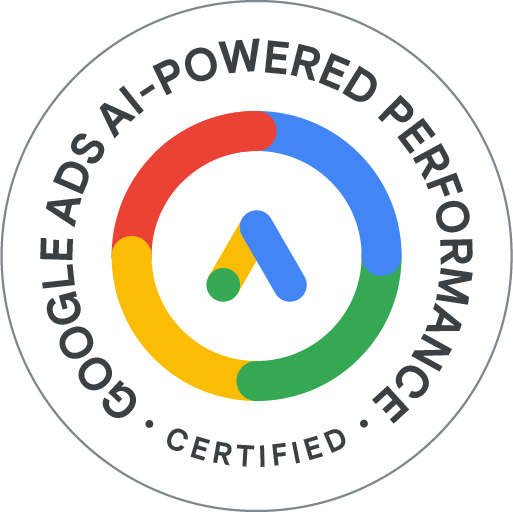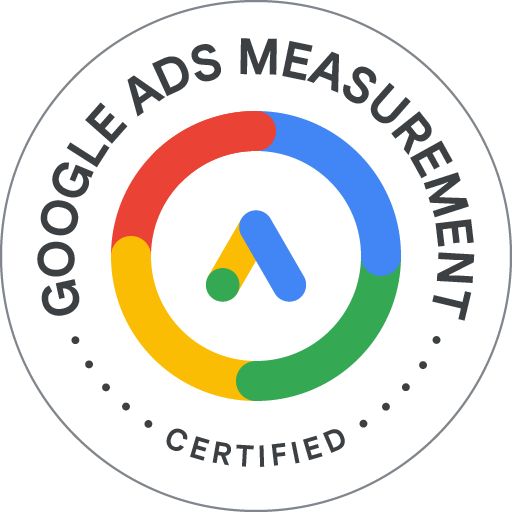Most american small businesses think throwing more money at Google Ads guarantees top placement, but that belief misses a crucial truth. In reality, Google awards the highest spots to ads with strong Quality Scores, not just the biggest budgets. This means a carefully crafted, relevant ad can beat out more expensive bids. Uncover the facts about how the Google Ads auction really works and learn how to make smarter choices that protect your investment.
Table of Contents
- Google Ads Auction Basics And Common Myths
- How The Google Ads Auction Process Works
- Key Factors Influencing Ad Rank And Cost
- Bidding Strategies For Maximum ROI
- Common Google Ads Auction Mistakes To Avoid
Key Takeaways
| Point | Details |
|---|---|
| Understanding Ad Rank and Quality Score | Both components are essential for determining ad placement, emphasizing the importance of ad relevance over bid amount. |
| Debunking Common Myths | Bidding the highest does not guarantee top placement; focusing on quality and relevance is crucial. |
| Strategic Bidding Approaches | Utilize automated bidding strategies to optimize performance and maximize ROI effectively. |
| Avoiding Common Mistakes | Regularly monitor campaigns, focus on quality scores, and manage budgets conservatively to enhance ad effectiveness. |
Google Ads Auction Basics and Common Myths
Understanding the Google Ads auction is crucial for small business owners seeking to maximize their digital advertising investment. The auction process is far more nuanced than simply paying the highest price for ad placement. According to digital.uni.edu, Google’s Chief Economist Hal Varian reveals that each search query triggers a real-time auction determining ad placement and cost.
The core of the Google Ads auction revolves around two critical components: Ad Rank and Quality Score. Contrary to popular belief, the highest bidder does not automatically secure the top ad position. Blogs.cornell.edu explains that Google evaluates Ad Rank by multiplying an advertiser’s bid with their Quality Score, which measures ad relevance. This means a highly relevant ad with a lower bid can outperform a less relevant ad with a higher bid.
Let’s break down some common myths about Google Ads auctions:
-
Myth 1: The Highest Bidder Always Wins
Reality: Ad relevance and Quality Score significantly impact ad placement -
Myth 2: Google Ads Are Too Expensive for Small Businesses
Reality: Strategic bidding and high-quality ads can provide cost-effective advertising -
Myth 3: Ad Placement Is Solely Based on Money
Reality: Google prioritizes user experience by considering ad quality and relevance
Successful Google Ads campaigns require understanding these nuanced auction dynamics. By focusing on creating high-quality, relevant ads and strategically setting bids, small businesses can effectively compete in the digital advertising marketplace. For a deeper dive into ad targeting strategies, explore our comprehensive guide to maximizing your Google Ads ROI.
How the Google Ads Auction Process Works
Every time someone performs a Google search, a complex and lightning-fast auction occurs behind the scenes to determine which ads appear and in what order. According to research from Harbaugh University, this auction is far more sophisticated than a simple highest-bidder-wins scenario. Advertisers compete for ad placement by bidding on specific keywords, but the winning position depends on multiple interconnected factors.
The core mechanism driving this auction is Ad Rank, a dynamic calculation that multiplies an advertiser’s maximum bid by their Quality Score.
The Quality Score is a critical metric encompassing factors like ad relevance, expected click-through rate, and landing page experience. As the Harbaugh research reveals, the advertiser with the highest Ad Rank secures the top ad position, but the actual cost per click is determined by a nuanced formula involving the Ad Rank of the competitor positioned just below them.
Let’s break down the Google Ads auction process into key steps:
- Keyword Selection: Advertisers choose relevant keywords for their business
- Bid Placement: Set maximum bid amounts for selected keywords
- Quality Score Calculation: Google evaluates ad and landing page relevance
- Ad Rank Determination: Bid × Quality Score computes ad positioning
- Auction Execution: Real-time assessment for each search query
Small businesses can level the playing field by focusing on creating high-quality, relevant ads rather than simply outspending competitors. Explore our guide on Google Ads best practices for local businesses to understand how strategic ad creation can optimize your digital marketing performance without breaking the bank.
Key Factors Influencing Ad Rank and Cost
Understanding the intricate mechanisms behind Google Ads requires deep insight into the factors that determine ad placement and cost. According to research from DMANC, Google’s auction system is a sophisticated process that goes far beyond simple monetary bidding. The two primary components driving this system are bid amount and Quality Score, which together create a dynamic and nuanced advertising ecosystem.
The Quality Score is a critical metric that can significantly impact an advertiser’s success. As explained by Cornell Blogs, Google employs a variation of the second-price Vickrey auction, which incentivizes advertisers to create high-quality, relevant ads. This approach means that simply outspending competitors doesn’t guarantee top ad placement. Instead, advertisers are rewarded for creating compelling, relevant content that provides genuine value to potential customers.
Key factors influencing Ad Rank and cost include:
- Bid Amount: The maximum price you’re willing to pay per click
- Quality Score: Comprised of three primary elements:
- Ad Relevance
- Expected Click-Through Rate (CTR)
- Landing Page Experience
- Ad Extensions: Additional information that can improve ad visibility
- Keyword Relevance: How closely your ad matches search intent
- Historical Performance: Your account’s past advertising effectiveness
Small businesses can leverage these insights to optimize their Google Ads strategy. Explore our guide on performance marketing strategies to understand how to maximize your advertising investment and create high-performing ad campaigns that deliver real results.
Bidding Strategies for Maximum ROI
Successful Google Ads campaigns require strategic bidding approaches that balance cost-effectiveness with performance goals. According to research from Journal of Marketing Management, advertisers can significantly enhance their auction performance by leveraging advanced bidding strategies that go beyond traditional manual approaches. Modern digital marketers have multiple sophisticated options to optimize their advertising spend and achieve targeted outcomes.
Google offers automated bidding strategies that use machine learning algorithms to adjust bids dynamically. As highlighted by DMANC, these strategies enable advertisers to maximize return on investment by intelligently managing budget allocation. The key automated bidding strategies include:
- Target CPA (Cost Per Acquisition): Automatically sets bids to generate conversions at your specified cost
- Enhanced Cost Per Click (ECPC): Adjusts manual bids based on conversion likelihood
- Maximize Conversions: Uses your entire budget to generate maximum conversions
- Target ROAS (Return On Ad Spend): Aims to achieve a specific return on your advertising investment
Small businesses can strategically approach bidding by:
- Starting with manual bidding to understand baseline performance
- Gradually transitioning to automated strategies
3. Continuously monitoring and adjusting bid strategies
4. Analyzing performance metrics regularly
Explore our guide on essential Google Ads types for business growth to understand how different bidding strategies can be applied across various campaign formats.
Common Google Ads Auction Mistakes to Avoid
Navigating the Google Ads auction requires strategic thinking and a nuanced understanding of the platform’s complex mechanisms. Many small businesses inadvertently sabotage their own advertising efforts by making critical mistakes that can drain budgets and reduce campaign effectiveness. Understanding these potential pitfalls is the first step toward creating more successful digital advertising strategies.
One often overlooked aspect of the Google Ads auction is the platform’s unique positioning. As research from Cornell Blogs reveals, Google simultaneously acts as both the auctioneer and a participant in the ad marketplace. This dual role can create subtle dynamics that advertisers must carefully navigate to maximize their campaign performance.
Common Google Ads auction mistakes include:
- Ignoring Quality Score: Focusing solely on bid amount instead of ad relevance
- Broad Keyword Targeting: Using overly generic keywords that attract irrelevant clicks
- Neglecting Ad Extensions: Missing opportunities to improve ad visibility and click-through rates
- Inconsistent Landing Pages: Creating ads that don’t match the destination page
- Set-and-Forget Mentality: Failing to regularly monitor and optimize campaigns
-
Budget Mismanagement
- Start with conservative daily budgets
- Gradually increase spending as you understand performance
- Use automated bidding strategies strategically
-
Performance Tracking
- Monitor key metrics consistently
- Adjust strategies based on data insights
- Test different approaches systematically
Explore real-world examples of successful Google Ads campaigns to understand how top performers navigate these challenges and maximize their advertising investments.
Unlock the Full Potential of Your Google Ads Auction Strategy
Struggling to decode the complexities of the Google Ads auction? This guide highlights common challenges small business owners face like balancing bid amount with Quality Score and crafting relevant ads that truly convert. The key to success lies in understanding how Ad Rank impacts your ad placement and cost. If you find yourself overwhelmed by the nuances of bidding strategies or worried about wasting budget on ineffective campaigns Click Thrive Marketing can help. Our expertise lies in optimizing Google Ads campaigns to boost relevance and maximize ROI with proven strategies tailored for small and medium-sized businesses.
Ready to move beyond guesswork and make every dollar count? Visit our Uncategorized Archives to explore expert insights on Google Ads management. Then take the next step by partnering with Click Thrive Marketing at https://clickthrivemarketing.com. Let us help you build data-driven campaigns that deliver real leads and measurable growth today.
Frequently Asked Questions
What is the Google Ads auction process?
The Google Ads auction is a real-time bidding system that determines which ads to display based on several factors, including maximum bid, Quality Score, and ad relevance.
How does Ad Rank influence ad placement in Google Ads?
Ad Rank is calculated by multiplying an advertiser’s bid amount by their Quality Score, which includes ad relevance and expected click-through rate. A higher Ad Rank can lead to better ad placement.
Can small businesses compete effectively in Google Ads?
Yes, small businesses can compete effectively by focusing on creating high-quality, relevant ads and using strategic bidding approaches rather than simply outspending competitors.
What are some common mistakes to avoid in Google Ads campaigns?
Some common mistakes include ignoring Quality Score, using broad keyword targeting, neglecting ad extensions, and failing to regularly monitor and optimize campaigns.
Recommended
- What Is Online Advertising? Complete Digital Guide – Click Thrive Marketing
- Ad Targeting Explained: Maximizing ROI With Precision – Click Thrive Marketing
- 7 Google Ads Best Practices Every Local Business Needs – Click Thrive Marketing
- Why Invest in Google Ads: Complete Expert Guide – Click Thrive Marketing



